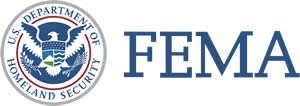RSS feed source: Federal Emergency Management Agency
Both Disaster Recovery Centers will remain open until further notice.
ST. LOUIS – The deadline to apply for FEMA Individual Assistance is drawing near for Missouri residents affected by the May 16 disaster.
If your home or personal property sustained damage not covered by insurance, FEMA may be able to provide money to help you pay for home repairs, a temporary place to live and replace essential personal property that was destroyed.
The fastest way to apply for Individual Assistance is at DisasterAssistance.gov. You may also apply by calling FEMA at 1-800-621-3362 or visiting a Disaster Recovery Center. The deadline to apply for FEMA Individual Assistance is August 26, 2025.
Disaster Recovery Centers
Two Disaster Recovery Centers are still open in St. Louis City with FEMA and U.S. Small Business Administration staff helping impacted residents with their disaster assistance applications, answering questions, and uploading required documents.
LOCATIONSHOURS OF OPERATION
Urban League Entrepreneurship and Women’s Business Center
4401 Natural Bridge Ave.
St. Louis, MO 63115
Monday-Friday: 8 a.m.-7 p.m.
Saturday: 9 a.m.-4 p.m.
Sunday: Closed
Closed on Labor Day
Union Tabernacle M.B. Church
N Newstead Ave.
St. Louis, MO 63108
Monday-Friday: 8 a.m.-7 p.m.
Saturday and Sunday: Closed
Closed on Labor Day
You can still ask for additional assistance, as long as you submit an initial application before the deadline.
Click this link to continue reading the article on the source website.


